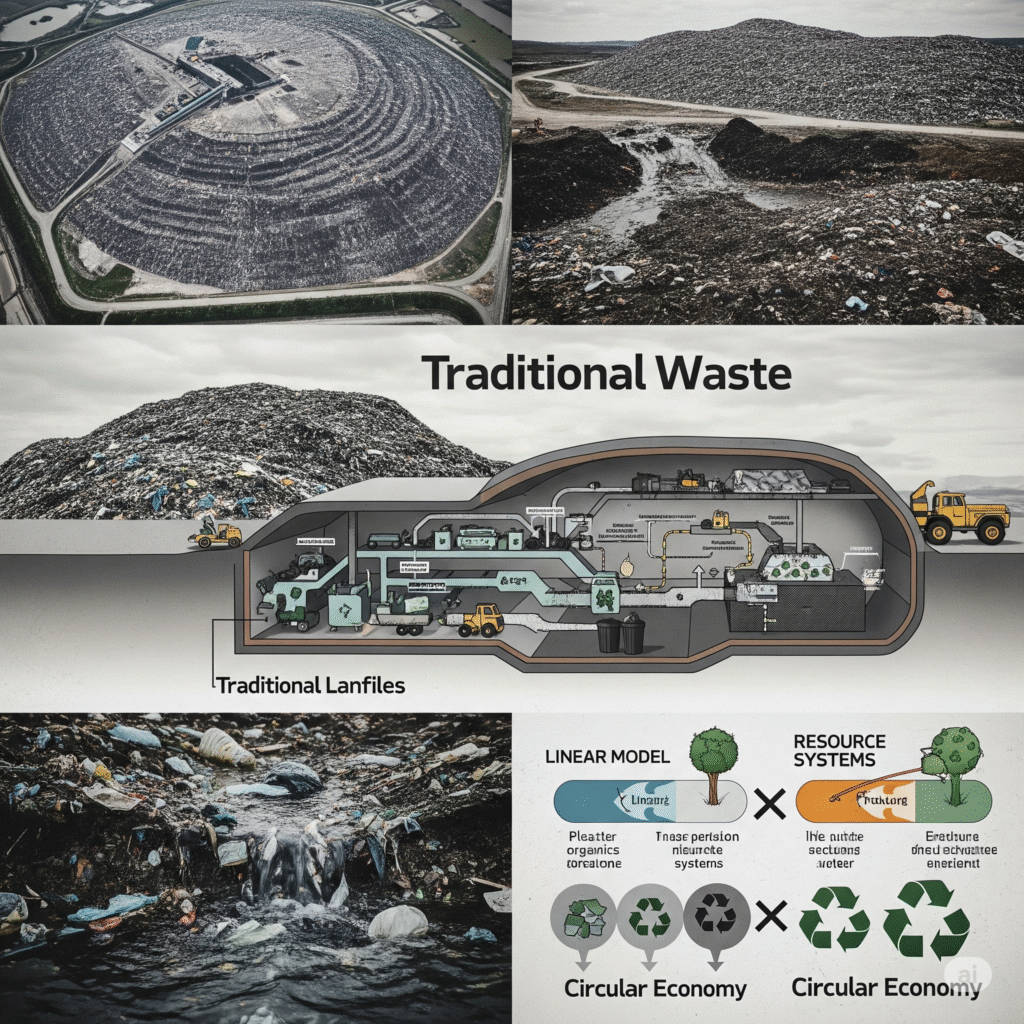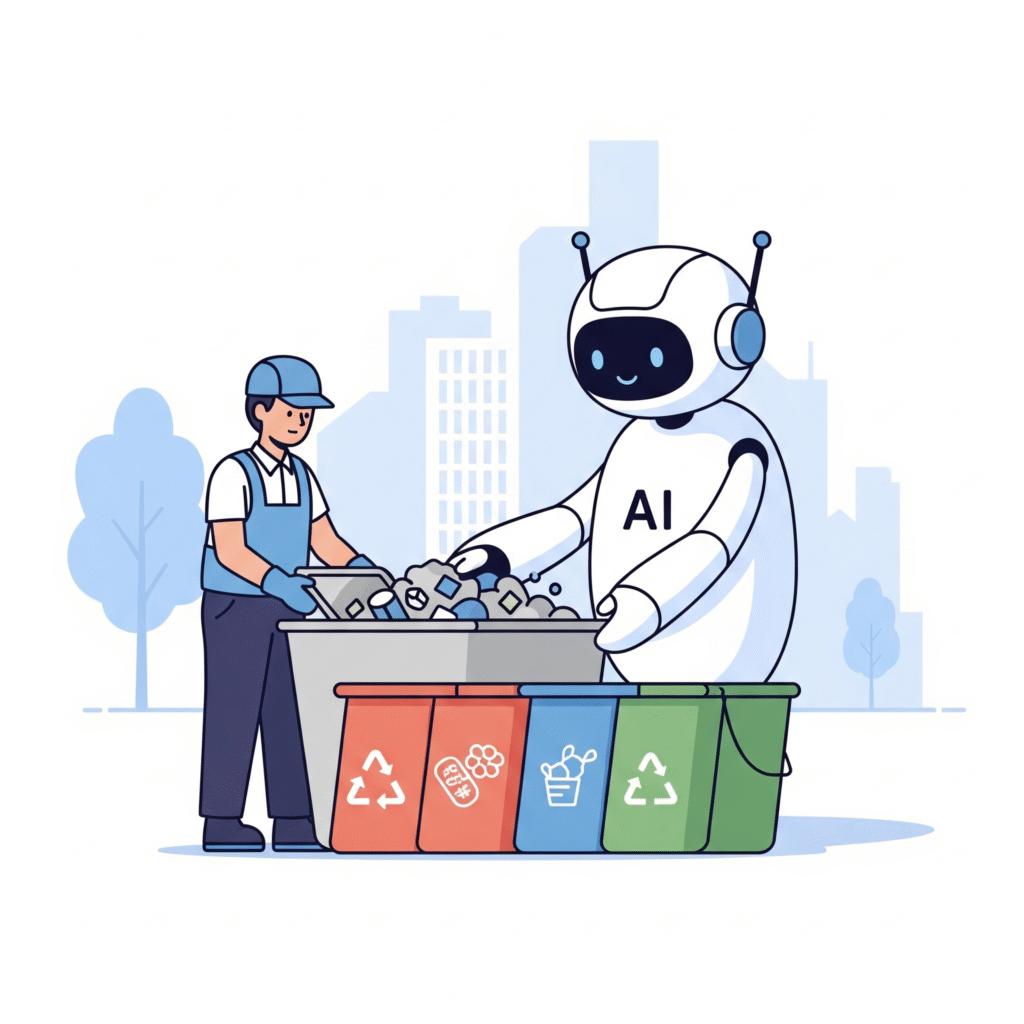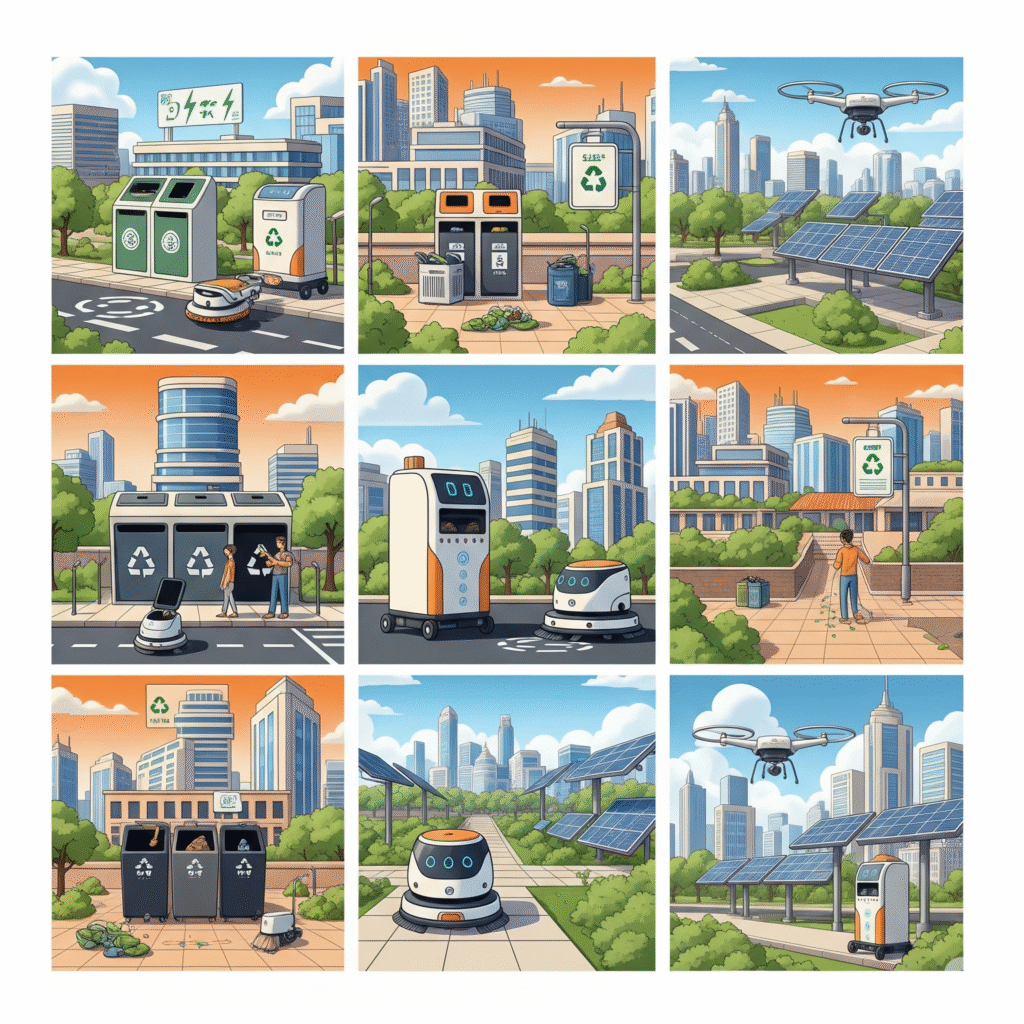Smart City Waste Tech and AI waste management
Discover how artificial intelligence is transforming urban waste management. Learn about AI recycling bins, smart waste sorting, and green city tech with high efficiency.
🏙️ Smarter Cities Begin with Smarter Waste Systems
Urban waste is a growing crisis. With landfills overflowing and recycling systems under strain, cities across the globe are seeking intelligent waste solutions. That’s where artificial intelligence (AI) steps in. From smart bins that sort trash to AI-powered fleet systems, the future of urban waste management is here—and it’s cleaner, greener, and more efficient.

🔍 Why Traditional Waste Systems Are Failing

Most cities still rely on outdated, manual waste collection and sorting processes. These systems are:
- Labor-intensive and error-prone
- Costly and inefficient
- Poor at identifying recyclable vs. non-recyclable materials
- Often blind to real-time waste data
The result? Missed recycling opportunities, higher emissions from waste trucks, and poorly managed landfills.
🤖 1. AI-Powered Smart Bins: The Future of Public Waste Disposal

Smart bins like the ones developed by CleanRobotics and Bin-e use AI and sensors to automatically:
- Detect and sort waste (recyclable, compostable, landfill)
- Compress trash to reduce pickups
- Send alerts when full
🟢 Eco Impact:
- Improves recycling accuracy by up to 90%
- Reduces contamination in recyclables
- Cuts collection frequency and fuel use
🚛 2. Intelligent Waste Collection: Optimized Routes with AI
Companies like Evreka and Sensoneo offer smart waste fleet tracking. Their AI systems:
- Analyze fill levels via IoT sensors
- Suggest optimal collection routes
- Monitor driver behavior and fuel efficiency
🟢 Benefits:
- Reduces fuel costs and emissions
- Decreases overtime and human error
- Responds to waste hotspots in real time
Also Read: https://ecolivai.com/best-ai-phones-2025/
🧠 3. Automated Waste Sorting in Recycling Plants
AI-enabled systems use computer vision + machine learning to scan waste on conveyor belts at recycling centers.
Systems like AMP Robotics can:
- Identify materials like plastic, glass, aluminum
- Sort items at 80+ items per minute
- Reduce the need for human sorters
🟢 Result:
- Lower recycling plant costs
- Improved material recovery rates
- Cleaner recycled product supply
📊 4. Real-Time Data Dashboards for Waste Analytics
AI also helps city governments and sanitation departments with real-time dashboards that:
- Track waste generation per district
- Predict future waste volumes
- Optimize resource allocation
🟢 Why it matters:
- Enables better planning
- Identifies inefficiencies
- Supports zero-waste city policies
🏢 5. Smart Waste Tech for Buildings & Businesses
Hotels, malls, schools, and corporate offices are adopting AI systems to reduce operational waste:
- AI-based composting monitors (like BioHiTech)
- Building-level waste analytics platforms
- Automated waste compactors with remote control
🟢 Ideal for:
- LEED-certified buildings
- ESG-compliant companies
- Sustainability-focused campuses
🌍 Final Thoughts: AI Is Cleaning Up the Future of Cities

The integration of AI in waste management isn’t just a tech upgrade—it’s a sustainability breakthrough. From smart bins to automated sorting, these solutions are transforming cities into smarter, cleaner, and more eco-friendly ecosystems.
As the demand grows for “AI in smart cities” and “green urban tech,” now is the time for governments, startups, and citizens to embrace AI’s full potential in the fight against waste.
Also Read : https://mycarbike.com/game-changer-tata-harrier-ev-launched-in-india-with-627-km-range/,
Samsung Galaxy Z Fold 7 & Z Flip 7: The Ultimate Foldables Just Got Smarter
